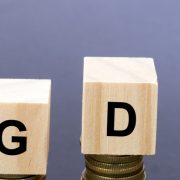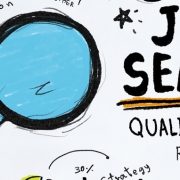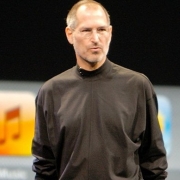We live and operate in the service economy. For example, services account for 80% of US GDP according to the World Bank (and this is 2015 data, so probably the number has increased since then). And services account for 80% of US private sector employment according to official statistics.
Actually, we should think more expansively about services. According to the framework called service-dominant logic, all production is valued by consumers as a service. Goods derive their value through use – the service they provide. All economies are service economies, and all jobs are service jobs.
Knowledge For The Benefit Of Others.
The definition of service, according to the discipline called Service Science, and its intellectual father, Dr. James C. Spohrer, is the application of knowledge for the benefit of others. The science part of Service Science is, today, highly focused on adding artificial intelligence capabilities to service-delivering entities in order to apply knowledge to perform a service task as well as or better than a person.
In other words, all the entrepreneurs throughout the country and the economy and the world are doing their best to do better in helping other people. In his book The Inevitable, Kevin Kelly says that he knows the business plans of the next 10,000 start-ups: “Take X, and add A.I.” – making service better by adding online intelligence.
But it’s not just A.I. entrepreneurs. Your tax accountant, your hairdresser, your dry cleaner, your delivery service, and your attorney are all thinking hard every day about how to serve you better. If they don’t, someone else will.
Service Providers Want You To Enjoy A Great Experience.
The output of a service is an experience. You get a completion, such as a tax return or a clean shirt, of course. But what you actually receive is a feeling that your life is better as a result. You feel relieved at filing your taxes on time and that they are accurate; you feel well groomed; you feel well-defended in your law suit.
In order to produce this result, service providers must be highly empathetic. They must know your emotional preferences and cater to them. It’s a big challenge, because your experience – the one on which you judge your service provider – is subjective, idiosyncratic, often inconsistent from day to day, and always emotionally charged. One day you are stood in line at Starbucks happily checking your Facebook messages without a care. The next day, at the same time in the same length of line with the same barista, you are screaming inside because you are late for an early meeting at the office. How can a service provider cope with this emotional inconsistency?
The Morality Of Service.
The answer is that they want to help you. As Adam Smith said in The Theory Of Moral Sentiments:
How selfish soever man may be supposed, there are evidently some principles in his nature, which interest him in the fortune of others, and render their happiness necessary to him, though he derives nothing from it except the pleasure of seeing it.
That same morality that Adam Smith identified in empathy now manifests itself in the entrepreneurial service economy. Everyone is competing to help you. Today we have 5 star ratings and comment streams and social media and reference checks to make good service a national obsession. Every service provider is trying to be different and better, which means a better experience for you. They try to be uniquely valuable to you via personalization – serving you as a unique individual with unique needs. They strive for your loyalty, by always listening and always responding to your changing needs.
If they can combine personal and technological service, and if you like the combination, then that’s the new experience you can expect. Turbo Tax for example is software that will complete your tax return for you, and also offers Turbo Tax Live and Turbo Tax Expert Services if you want that extra emotional reassurance of a human expert to answer your individual question. Over time, we’ll trust the software more and have less need for the human expert, but for now the combination suits us better.
The Opposite Case.
Politicians claim to be in “public service”. But the opposite is the case. Their entire political system consists of someone losing in order for someone else to win. Someone must be defeated. Therefore they recruit their own voters, with the specific objective of defeating the interests of the opposition’s voters. They lie and cheat in order to continue defeating their opposition, i.e. other human beings.
In the world of service, every human can be served the way they prefer, and they’re free to change service providers if they feel that bargain is not being kept. In the world of politics, not so much.













